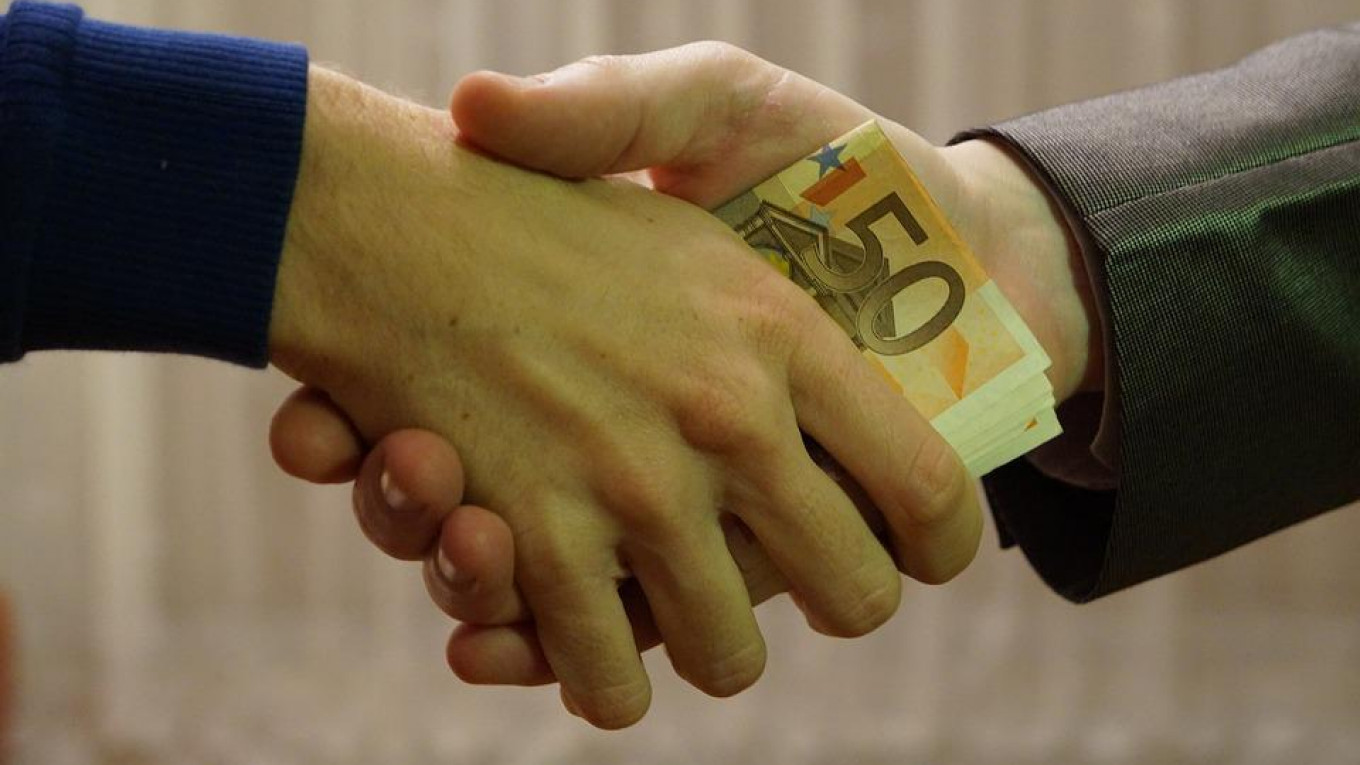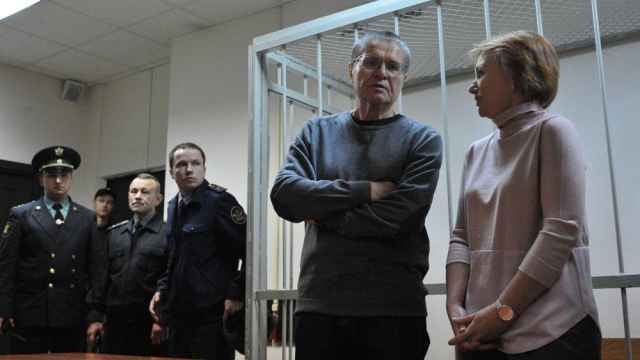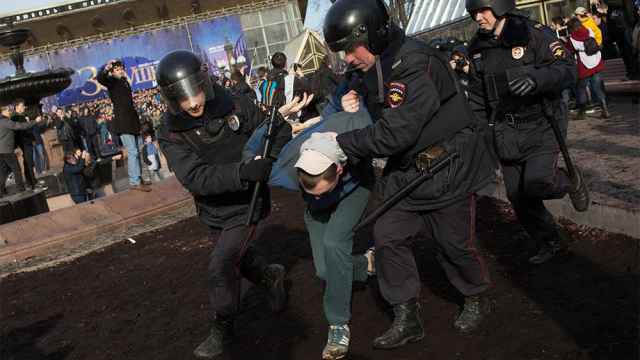A Russian court has found something else unusual to ban online: bribery instructions.
On Oct. 10, a Krasnoyarsk city court ruled in favor of the regional prosecutor's request to ban websites providing instructions on giving illegal kickbacks to public officials. The ruling, which was announced on the prosecutor's website on Thursday, will allow for the blocking of a series of articles entitled "How to properly give kickbacks."
Such publications "negatively affect anti-corruption work, undermine government authority, and create social preconditions for committing [corruption] crimes," the prosecutor's office wrote.
Kickbacks – otkat in Russian – refer to a form of bribery in which an official chooses a private contractor to provide a service for the state with the understanding that, in return, the contractor will give the official a fixed bribe or a percent of the income from the contract.
Earlier this month, a court in the town of Arzamas blocked an online article based upon the 1837 book "How to Correctly Take Bribes." The article was published on an educational website.
A Message from The Moscow Times:
Dear readers,
We are facing unprecedented challenges. Russia's Prosecutor General's Office has designated The Moscow Times as an "undesirable" organization, criminalizing our work and putting our staff at risk of prosecution. This follows our earlier unjust labeling as a "foreign agent."
These actions are direct attempts to silence independent journalism in Russia. The authorities claim our work "discredits the decisions of the Russian leadership." We see things differently: we strive to provide accurate, unbiased reporting on Russia.
We, the journalists of The Moscow Times, refuse to be silenced. But to continue our work, we need your help.
Your support, no matter how small, makes a world of difference. If you can, please support us monthly starting from just $2. It's quick to set up, and every contribution makes a significant impact.
By supporting The Moscow Times, you're defending open, independent journalism in the face of repression. Thank you for standing with us.
Remind me later.






